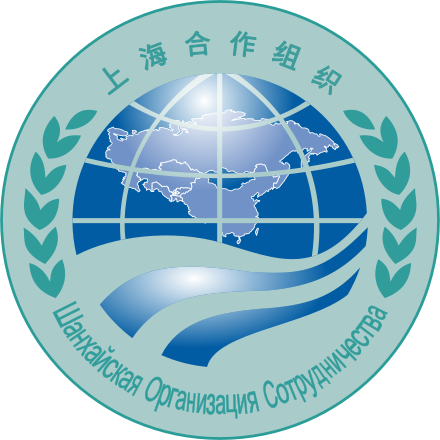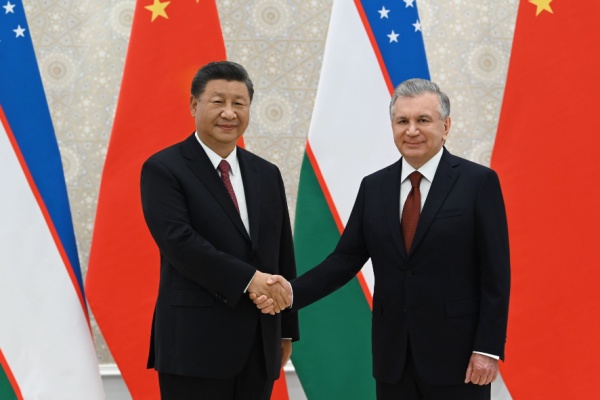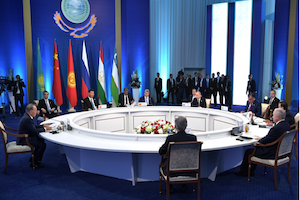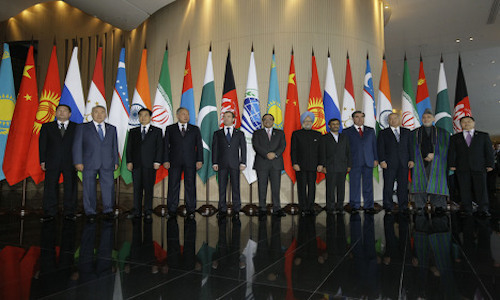Will the Shanghai Cooperation Organization Reconfigure Educational Cooperation?
WILL THE SHANGHAI COOPERATION ORGANIZATION RECONFIGURE REGIONAL EDUCATIONAL COOPERATION?
By Rafis Abazov
The recent Shanghai Cooperation Organization (SCO) summit in Astana has rekindled discussions on the role of the organization in reshaping regional educational cooperation. Historically known for its focus on security and economic issues, the SCO is increasingly recognizing education as a cornerstone for sustainable development and regional stability. This shift is significant for member states—China, Russia, India, and several Central Asian countries—as they navigate the complexities of globalization and seek to bolster their human capital. The main question is whether declarations at the summit denote a shift in the regional educational architecture.
BACKGROUND: Since its inception in 2001, the SCO has primarily concentrated on security cooperation and economic integration among its member states. However, the need for a skilled workforce, capable of driving innovation and economic growth, has brought education into the spotlight. The Astana SCO-2024 Summit underscored this shift, highlighting the potential of educational cooperation to foster mutual understanding, enhance economic ties, and promote cultural exchanges. In recent years, the SCO has launched various educational initiatives. The establishment of the SCO University Network, the SCO Youth Council and regional scholarship themes led to a sharp increase in regional student mobility – for example China reached a milestone in 2022 by attracting one million foreign students, while Kazakhstan attracted almost 30,000. Indeed, these efforts facilitated academic exchanges, joint research projects, and cultural interactions among students and scholars from member countries. The Astana summit built on these foundations, proposing a more structured and collaborative approach to educational cooperation, as almost one quarter of the 31 agreements signed during the summit were dedicated to the area of science and education. On top of this, Kazakhstan’s Ministry of Science and Higher Education hosted the regional conference “Cooperation in the field of higher education and production integration,” focused on developing a unified approach to accreditation, curriculum design, quality assurance, student mobility and mutual recognition of qualifications.
IMPLICATIONS: One of the important areas discussed at the Astana summit was the enhancement of academic exchanges and research collaborations. By fostering partnerships between universities and research institutions across member states, the SCO aims to create a robust network of knowledge and innovation. Such collaborations can lead to significant breakthroughs in various fields, from science and IT technology to social sciences and smart agriculture.
The proposed initiatives include exchange programs for students and faculty, joint research projects, and the creation of cross-border academic networks and joint research labs to study the impact of climate change at the regional and sub-regional levels. These efforts are expected to enhance the quality of education and research in member states, making them more competitive on the global stage. Another critical focus is the harmonization of educational standards across SCO countries. This alignment would not only enhance educational opportunities but also support a more integrated approach to developing double diploma programs between universities.
The summit proposed the creation of a common framework for higher education within the SCO. This framework would include standardized guidelines for curriculum development, accreditation processes, and quality assurance mechanisms. Such harmonization can make it easier for students to transfer credits between institutions in different countries and for professionals to have their qualifications recognized across the region. The COVID-19 pandemic has underscored the importance of digital education and technological integration.
The SCO members acknowledged that there is a rapid shift towards online learning, and an urgent need to invest in digital infrastructure and resources. The Astana summit highlighted the potential for collaboration in developing e-learning platforms, distance education programs, and digital literacy initiatives. In this context, the leading Chinese universities (such as Chinese Agriculture University) took initiatives to exploring ways of leveraging technology to bridge the digital divide among member states by promoting access to quality education and facilitating lifelong learning and upskilling, essential for adapting to the rapidly changing job market.
The creation of cohesive and inclusive frameworks would help to upscale the internationalization of education by integrating educational systems, and organizational cultures across SCO member states, and developing joint digital infrastructure. However, these initiatives require significant investments. Indeed, economic disparities among member states pose significant challenges. While some countries have advanced educational and digital infrastructures, others may struggle with limited resources and capacity. At least three countries – China, Kazakhstan and Uzbekistan – have allocated significant resources for bridging this gap, supporting deeper educational collaboration, and accelerating the adoption of online learning, access to digital tools and other resources.
CONCLUSION: The Astana summit SCO-2024 has set the stage for the SCO to play a transformative role in regional educational cooperation. As member states work to align their educational systems and policies, the organization is poised to reshape the regional educational architecture significantly. With a focus on academic collaboration, standardization, and digital innovation, the SCO is on a path to create a more integrated and dynamic educational ecosystem.
The success of future initiatives will depend on building on the foundations laid by existing programs. Strengthening and expanding platforms like the SCO University Network, the SCO Youth Council and numerous educational consortiums can provide a solid base for more ambitious projects. These platforms can serve as hubs for collaboration, innovation, and cultural exchange. Effective implementation requires the active engagement of various stakeholders, including governments, educational institutions, the private sector, and civil society. Collaborative efforts and partnerships can ensure that initiatives are well-designed, adequately funded, and effectively implemented.
The SCO has the potential to reconfigure regional educational architecture by enhancing educational cooperation and recognizing education as a cornerstone for regional development and peaceful integration. The outcomes of the Astana meeting signal a promising future for educational collaboration in the SCO region, with the potential to yield significant economic, social, and cultural benefits. As the SCO continues to evolve, its focus on education can play a transformative role in shaping the region’s future. By fostering a more interconnected and innovative educational landscape, the SCO can contribute to a more prosperous, stable, and cohesive region.
The Astana summit has marked a new chapter in this journey, setting the stage for the SCO to reconfigure the regional educational architecture in meaningful and impactful ways. Joint research projects and academic exchanges can generate new ideas, technologies, and solutions to common problems. This, in turn, can drive economic growth and increase competitiveness, positioning the SCO region as a leader in various fields.
AUTHOR’S BIOS: Rafis Abazov, PhD, is a director of the Institute for Green and Sustainable Development at Kazakh National Agrarian Research University. He is author of The Culture and Customs of the Central Asian Republics (2007), The Stories of the Great Steppe (2013) and some others. He has been an executive manager for the Global Hub of the United Nations Academic Impact (UNAI) on Sustainability in Kazakhstan since 2014 and participated at the International Model UN New Silk Way conference in Afghanistan.
The New Challenge to the SCO
THE NEW CHALLENGE TO THE SCO
By: Stephen Blank
The recent summit of the Shanghai Cooperation Organization (SCO) in Astana reveals that both Moscow and Beijing are seeking to reformat the organization in order to meet their global rather than its original regional goals. That process represents a serious challenge to the foreign policy autonomy and interests of Central Asian states and probably to regional security. As the center of gravity of world politics shifts ever more to Asia, the role and importance of Central Asia is likely to grow. These trends should be recognized and acted upon to assure that Central Asia does not become a closed sphere of Sino-Russian influence, which would retard its growth and transform it into a breeding ground for conflict.

BACKGROUND: The SCO was first set up to create an institutional framework by which China’s growing importance in and to Central Asia could be regulated. At the same time, it also constituted a forum for Central Asian governments whereby they could address not only each other but also Russia and China concerning their interests and needs and where all the parties could reach agreement on how to contend with shared threats, e.g. the genuine and continuing threat of terrorism. As such the SCO gradually evolved into a viable regional security forum where both Moscow and Beijing could present or implement their regional security initiatives and Central Asian states could present their interests and needs. Thus, it functioned to satisfy all the members’ needs as a purely regional security organization.
However, as world politics evolved towards a world order characterized primarily by great power rivalry and even threats of nuclear confrontation, Russia and China clearly intend to impart a wholly new purpose and direction to the SCO that threatens the interests of the Central Asian states. Membership now includes India, Pakistan, Iran, and Belarus. These additions to the SCO’s roster are primarily attributable to Sino-Russian maneuvers – great power calculations that outweigh regional concerns. Moreover, these new members of the SCO have also brought their rivalries, especially those between India and Pakistan over Afghanistan and Kashmir, and India and China over China’s Belt and Road Initiative (BRI), into the SCO, probably rendering the organization less effective as a security provider. Finally, Russia’s war in Ukraine has also undermined its reputation as a security provider in Central Asia, not least because high-ranking scholars like Sergei Karaganov and officials regularly make veiled and even unsubtle threats against Kazakhstan, which they claim to be part of Russia.
Recent trends, as expressed at the SCO summit in Astana and other high-level Russo-Chinese gatherings, indicate that both Russia and China have abandoned the idea that the SCO serves mainly as a regional security institution. In numerous speeches, Putin, Xi, and spokesmen for their policies now openly state that the SCO, like the BRICS, manifests a new and evolving form of multipolar politics led by Moscow and Beijing, which herald the rise of the East and South against a supposedly decrepit West. In this self-serving ideological depiction of the emerging world order, these formerly regional or economic organizations function to attack the West and validate Moscow’s and Beijing’s hegemony over weaker neighbors like Central Asia. This hegemony entails an unquestioned division of the world into spheres of influence and the extreme minimization of foreign influence in Central Asia.
IMPLICATIONS: In this new world order, Russia’s visibly declining hegemony over Central Asian security and culture would be restored, possibly by force, and to judge from ongoing economic trends, under Chinese sufferance. While this may well be a delusional dream, it now holds sway in Moscow and represents another desperate effort to hold on to the wrecks of empire. As Sergei Radchenko demonstrates in his superb account of Soviet foreign policy, Moscow cannot claim the mantle of great power and imperial status if it lacks willing clients. Therefore, it will consistently attempt to subordinate its neighbors, including Central Asia.
China shares this imperial world view. Its methods in Russia and Central Asia are primarily economic, yet no less coercive than Russia’s more heavy-handed approach. However, Beijing is happy for now to let Russia bear security burdens that it prefers to avoid, given the challenges it faces in Korea, the South China Sea, and India. And it certainly welcomes Russia’s growing dependence on China in economics and as provider of strategic technologies.
If this interpretation of the SCO gains traction, it entails several challenges to Central Asian members and India. First, the vision of the SCO as a Sino-Russian artifact of a multipolar order entails a diminution of Central Asian states’ sovereignty as free international actors. Beijing and Moscow will seek to coerce them into following their agenda, not a Central Asian one. The idea that the SCO is merely an artefact of a great power struggle over multipolarity and spheres of influence not only justifies pressure upon Central Asia to oust U.S. and European presence and influence from the region. It also aims to curtail Central Asia’s increasing outreach to the West and vice versa that is now finally taking place. This exclusionary Sino-Russian approach can only lead to economic isolation, stagnation, and subordination to Moscow and Beijing when both those economies have long since entered upon their own periods of stagnation.
Second, the triumph of this view of the SCO enhances Russia’s and China’s economic leverage on Central Asia. It allows Moscow to continue threatening Central Asian migrants and economies by playing the increasingly popular anti-migrant card in Russian politics. Beijing will similarly employ the leverage it possesses through trade and investment deals to coerce local governments into an inferior position, especially if other alternatives are unavailable.
Third, Russian and possibly Chinese military threats, particularly against Kazakhstan, will increase. And fourth, at the same time Moscow and China will collaborate at China’s behest, given Russia’s extensive dependence on China, to exclude India from future major trade and transport routes as China has already done. Thus, the SCO will become a vehicle whose purposes also comprise the stifling of India’s growing power and interests in Central Asia. One form these processes will likely take is already underway whereby Russia will seek alignment with Afghanistan, ostensibly to stop terrorism and reaffirm its military hegemony over Central Asia. Indeed, its ambassador to Kabul now proclaims an alliance between the two states, an alliance that can only suppress Indian and Central Asian interests in expanding ties.
As part of this projected reorientation of the SCO, therefore, it will be subordinated to the exigencies of great power rivalry with the U.S. while the Sino-Indian rivalry in Asia will be institutionalized within it. The consequences may to some degree be unforeseeable; but are unlikely to redound to the benefit of Central Asian governments.
CONCLUSIONS: For interested parties, i.e. not only regional governments, but also the U.S. and the EU, it is necessary to prevent the resubordination of Central Asia to the renewed imperial fantasies of Russia and China. This entails constant high and low-level interaction among these states with regard to critical issues: terrorism, which clearly remains a real threat, future ties to Afghanistan, bilateral and multilateral energy, trade, transportation routes, rare earths, environmental reclamation projects, education, and defense cooperation. Only by such means can the West and its leading organizations contribute to the preservation of regional peace, trade, investment, growth, and mitigate looming environmental threats in Central Asia.
India too must step up its game here and realize the long-held but unfulfilled promise of enhanced ties with and support for Central Asia by carrying out an increasing number of projects on this same agenda with local governments. This would forestall a Chinese-led but Russian-supported effort to curtail Central Asian ties with both the West and Asia’s other key players. The newly announced South Korean plan for increased ties with Central Asia exemplifies what could be done.
Finally, both the West and leading Asian powers should lend growing support to the rising trend among Central Asian states to enhance their mutual and regional cooperation. To the degree that foreign support and local perceptions foster regional cooperation on the many challenges facing Central Asia, they enhance local and regional capabilities while also raising the cost to Beijing and Moscow of interference in Central Asia. In other words, Western support for individual country projects and especially for multilateral cooperative projects encompassing the agenda presented above, are win-win and mutually beneficial. They build peace, economic growth and development, and preserve the sovereignty and territorial integrity of Central Asian states that is openly at risk from both Beijing and Moscow.
Enhancing Western influence and regional cooperation are proven ways of reducing conflict whereas spheres of influence invariably foster neo-imperial rivalries. The masquerade of Sino-Russian multipolarity will not have different results if we neglect Central Asia. Instead, we will only increase the costs to that region and to our own interests.
AUTHOR’S BIO: Stephen Blank is a Senior Fellow with the Foreign Policy Research Institute, Fprpi.org.
China’s Free Riding in Central Asia’s Security Arrangements
By Vali Kaleji
June 20, 2024
Contrary to the economic, financial, and commercial domains where China has supplanted Russia in the five Central Asian states, Beijing is reluctant to assume a similar role in defense and security. China’s strategy, characterized by “free riding” at the expense of Russia and the Collective Security Treaty Organization (CSTO), has significantly influenced the Shanghai Cooperation Organisation’s (SCO) passive and conservative stance. Indeed, this aspect of China’s “soft power” has been instrumental in mitigating the escalation of anti-Chinese sentiments and “Sinophobia” within the region. By adopting a free riding approach and refraining from direct intervention in Central Asia’s security arrangements, China has been able to concentrate on economic, trade, and transit relations, particularly the Belt and Road Initiative. This strategy has facilitated China’s ability to address competition and strategic threats in other regions, notably Asia-Pacific and the Indian subcontinent.
Pakistan in the SCO: Challenges and Prospects
By Rizwan Zeb
February 8, 2018, the CACI Analyst
The Shanghai Cooperation Organization’s (SCO) Council of Heads of Government (CHG) held its 16th meeting on November 30-December 1, 2017. Pakistan’s PM Shahid Khaqan Abbasi highlighted the pivotal role that Islamabad can play in achieving the SCO’s objectives by serving as a bridge between Central and South Asia. However, in order to realize the potential benefits of Pakistan’s SCO membership, Islamabad needs to intensify its public diplomacy and improve its standing among the other member states by aligning its policy with other regional powers. Is Islamabad ready to do this?

India’s and Pakistan’s Memberships Diminishes SCO’s Ability to Compete with NATO
By Naveed Ahmad
July 18, 2017, the CACI Analyst
The Shanghai Cooperation Organization (SCO) summit admitted India and Pakistan as full members on June 9; and now represents 40 percent of the human population and 20 percent of the global GDP. Russia and China have traditionally used the forum to promote a collective approach to countering NATO policies and advances. Though originally instituted to address separatism, terrorism and drug trafficking, the admission of India and Pakistan may drastically change the character of the grouping. China and Pakistan differ with India on key issues that the SCO aims to achieve. The trio has bitter geographical disputes while differing over the definition of terrorism. Against this backdrop, what kind of challenge can the SCO pose to NATO?



